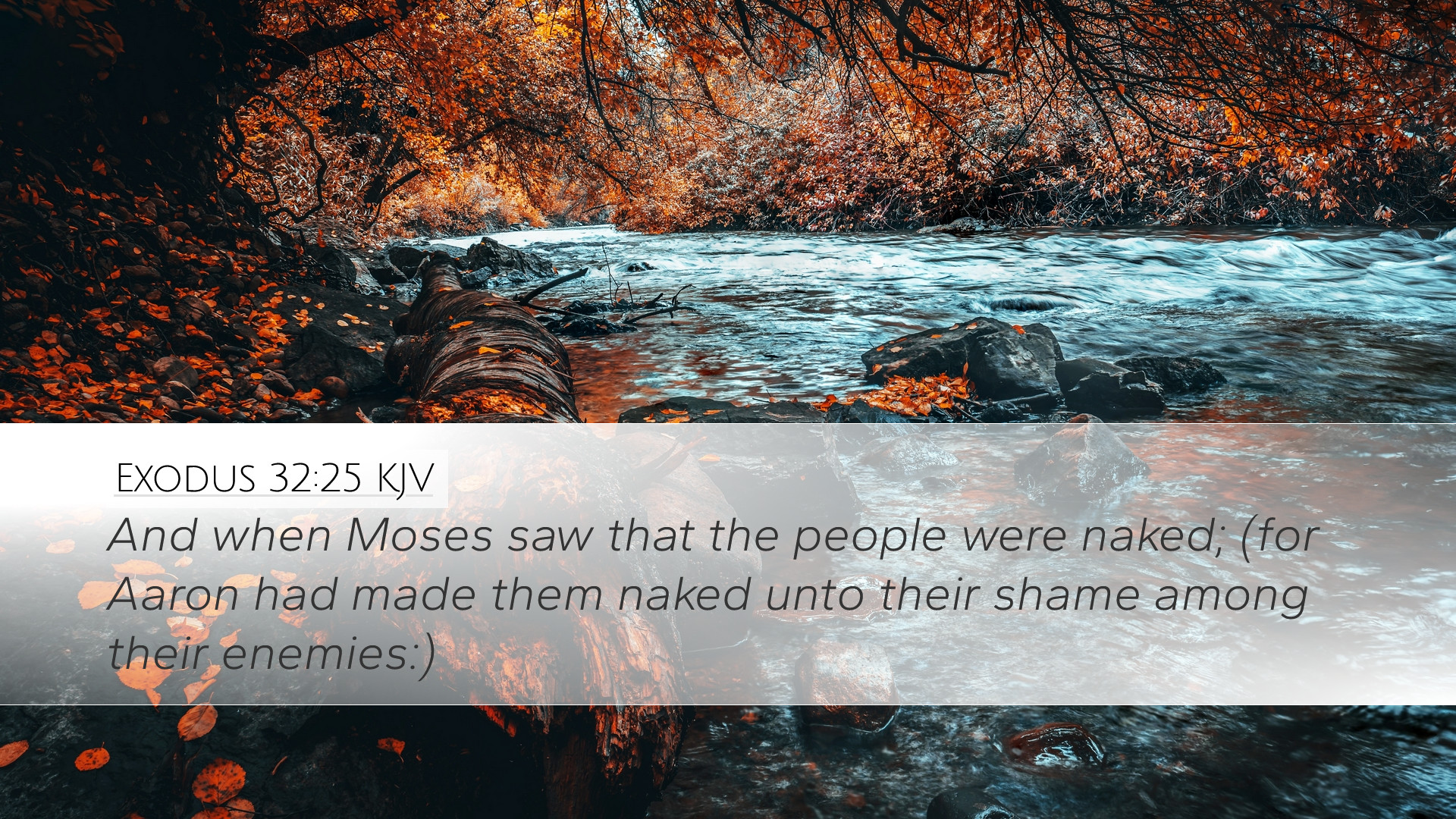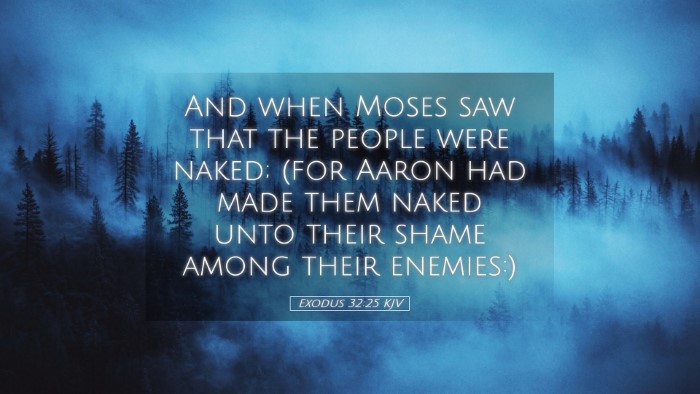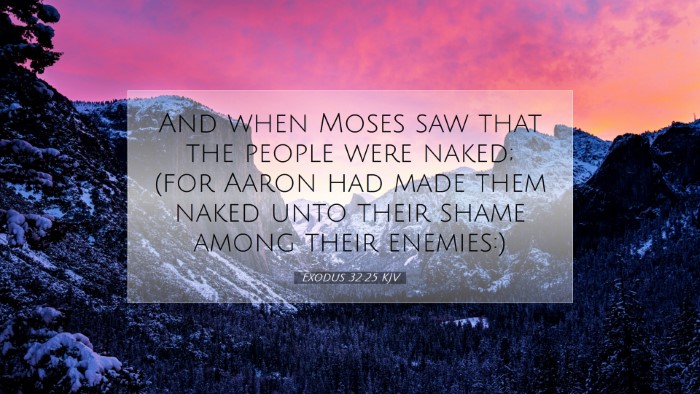Commentary on Exodus 32:25
Verse Context and Overview
Exodus 32:25 presents a pivotal moment in Israel's history, serving as a stark reminder of their rebellion against God while Moses was on Mount Sinai. The verse articulates a scene of chaos and moral decay among the people of Israel as they turned to idolatry by creating the golden calf.
The Immediate Context
This verse is set in an episode where the Israelites, having waited for Moses to come down from the mountain, grew impatient and demanded a physical representation of God. Their actions symbolize a betrayal of the covenant made at Sinai. The verse reads:
"And when Moses saw that the people were naked; (for Aaron had made them naked unto their shame among their enemies)." (Exodus 32:25, KJV)
Commentary from Matthew Henry
Matthew Henry emphasizes the moral state of the Israelites, noting that their actions reflected a complete disregard for divine authority. He remarks that the term "naked" not only refers to physical exposure but also signifies a spiritual nakedness—an absence of righteousness. The shame they incurred is twofold: it exposes their vulnerability before their enemies and highlights their shame before God.
Henry further indicates that the term "naked" suggests that the idol worship left them spiritually exposed, showcasing the futility of their endeavors. He observes the ironic twist of attempting to worship God through an idol, which ultimately leads them to greater disgrace.
Insights from Albert Barnes
Albert Barnes provides additional layers of interpretation, stressing the consequences of Israel's actions. He argues that this rebellion was not just an act of disobedience but also a deep-seated moral failure. Barnes posits that the moral corruption among the Israelites was a direct contrast to the holiness of God as they vacated the principles of righteousness.
Moreover, Barnes discusses the leadership of Aaron. He notes that Aaron's role in the perversion of worship is critical, depicting him as a figure who compounded the sin of Israel by yielding to their demands. Through Aaron, we see a failure of leadership that led the people astray.
Adam Clarke's Perspective
Adam Clarke takes a more historical approach, exploring the cultural implications of the Israelites' actions. He notes that the surrounding nations practiced idol worship, which the Israelites adopted in their impatience for Moses' return. Clarke argues that this assimilation was a significant factor in their moral degradation.
Clarke also comments on the need for divine discipline following such acts of rebellion. He reflects on how God, in His justice, responds to sin with appropriate judgment. This context helps understand the broader theme of God's holiness juxtaposed against Israel's repeated unfaithfulness.
Theological Reflections
Exodus 32:25 serves to illustrate several key theological principles:
- The Nature of Idolatry: The act of creating the golden calf symbolizes humanity's tendency to replace reliance on the unseen God with tangible but false representations.
- The Role of Leadership: This verse sheds light on the responsibilities that come with spiritual leadership and the dire consequences of failing to guide God's people towards righteousness.
- Divine Grace and Judgment: It reflects God's nature, where grace, despite human failure, meets with His judgment. Understanding this duality is essential for appreciating God's covenant relationship with His people.
Conclusion
In summary, Exodus 32:25 encapsulates a significant moment of moral failure and idolatry among the Israelites. The combined insights from the public domain commentaries richly explore the implications of this passage, serving as a warning against spiritual complacency and idolatry throughout history. For pastors, theologians, and students of the Word, this verse continues to challenge believers to evaluate their own allegiances and purity before God.


